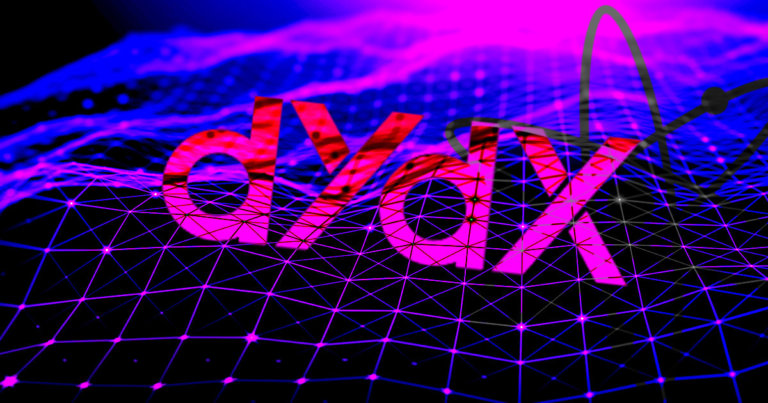 Why dYdX is leaving Ethereum and StarkWare for a native chain on Cosmos
Why dYdX is leaving Ethereum and StarkWare for a native chain on Cosmos Why dYdX is leaving Ethereum and StarkWare for a native chain on Cosmos
dYdX is moving to a native chain on the Cosmos ecosystem. But why is the DEX ditching Ethereum, the world's most popular Turing complete blockchain?

Cover art/illustration via CryptoSlate. Image includes combined content which may include AI-generated content.
The order book decentralized exchange, dYdX, is leaving the Ethereum blockchain to set up a native chain on the Cosmos ecosystem. The move is a surprise as the project defines itself as offering “advanced cryptofinancial products, powered by the Ethereum blockchain.”
The exchange is a unique platform offering lending, borrowing, perpetual futures, and margin and spot trading. Users connect their wallets similarly to a standard decentralized exchange and then deposit funds into the custody of dYdX via smart contract. The funds are, however, still only accessible via the users’ wallets, unlike centralized exchanges. The hybrid offering makes dYdX unique within the Ethereum ecosystem.
Why Cosmos?
dYdX described the move as “rebuilding dYdX as a standalone Cosmos based blockchain featuring a fully decentralized, off-chain, orderbook and matching engine.” The rebuild will be the fourth version of the DEX using the Tendermint consensus mechanism.
Through the utilization of the Cosmos SDK, the migration will allow the new version to offer, among other features, “full decentralization.” Further, Cosmos offers an almost unrivaled cross-chain interoperability through the IBC protocol. The current dYdX token is an Ethereum-based ERC-20 token using StarWare’s StarkEX to facilitate layer-2 functionality. However, the move to Cosmos will allow the dYdX platform to offer a truly taken token on its own blockchain and governance system.
An independent blockchain using the Cosmos SDK dYdX will have its layer-1 token, validators, and staking mechanisms. Therefore, it will not be accountable for updates to Ethereum or have any exposure to issues that may arise ahead of the proof-of-stake merge scheduled for September 2022. On Cosmos,
“each validator will run an in-memory orderbook that is never committed to consensus… the orderbook that each validator stores is eventually consistent with one another. On a real time basis, orders will be matched together by the network. The resulting trades are then committed on-chain each block. “
dYdX states that it “embraces radical changes in technology” and that Cosmos is an ecosystem that will allow it to continue to improve under its vision.
The core reason for dYdX leaving is the high throughput requirements of running a decentralized system with a live orderbook. This trading mechanism is “critical to the trading experience pro traders and institutions demand” and demands it to process over 1,000 transactions per second. By staying on Ethereum, dYdX sees problems with scaling this offering as;
“the fundamental problem with every L1 or L2 we could develop on is that none can handle even close to the throughput needed to run a first class orderbook and matching engine”
After the move, traders will no longer have to pay gas fees for transactions but instead, pay fees based on completed trades which will then be paid to stakers and validators.
Abandoning Layer-2
On Ethereum, dYdX has to use the StarkWare Layer 2 to offer some of its products, such as perpetual contract markets. Previously the platform had been looking to move towards a layer-2 to reduce gas fees and allow the exchange to scale.
“Ethereum can process around 15 transactions per second (TPS), which is not enough to support the hypergrowth of DeFi… Layer 2 scaling solutions — in the forms of Rollups – free up Ethereum’s base layer by offloading execution, leading to reduced gas costs and increased throughput without increasing network load.”
For the dYdX itself to transition, it will require the ERC-20 token holders to agree to the change as “DYDX, the protocol token of the dYdX protocol, is governed by its holders… dYdX Trading Inc. do not have control over how it is used.” The new protocol will be fully open-source and is currently looking to bring on new developers to help with the move.













































































































